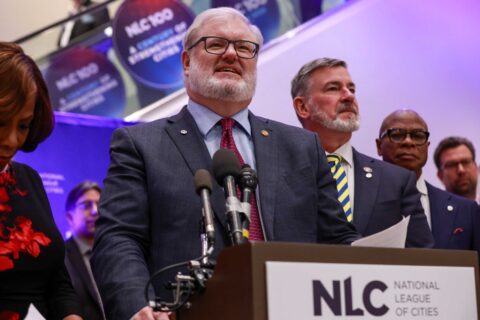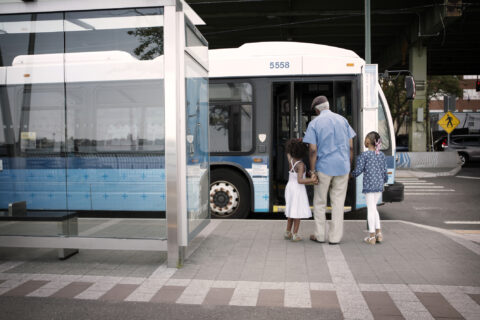The Affordable Connectivity Program (ACP), created by the Infrastructure Investment and Jobs Act, presents an opportunity to narrow the digital divide in many communities by providing qualified households with a $30 monthly discount on broadband service. However, enrollment in the program has lagged substantially behind the potential pool of beneficiaries.
During its August Open Commission Meeting, the Federal Communications Commission (FCC) announced new resources to help more households get enrolled in the Affordable Connectivity Program.
- The first is the Affordable Connectivity Outreach Grant Program, which will offer $100 million in competitive grant funding to entities working to inform eligible households about ACP and assist them with the enrollment process.
- The second is the “Your Home, Your Internet” pilot program, a $10 million pilot intended to help raise awareness about ACP among households receiving federal housing benefits.
While more than 12 million households have enrolled in ACP so far, an estimated 48 million households nationwide are eligible – meaning that only about 1 in every 4 qualifying households is receiving discounted broadband service. There are many reasons qualified households do not enroll: lack of awareness about the program, language or technology barriers in the enrollment process, difficulty providing the documentation necessary to verify eligibility, concerns about privacy, and an inability to afford the subscription even after the $30 discount has been applied. For the latter challenge, the White House has worked with a number of major internet service providers to secure commitments to offer plans that cost $30 or less, so that ACP enrollees can subscribe at no monthly out-of-pocket cost.
Local governments also have a key role to play as outreach partners for the ACP benefit. Local leaders can weave ACP outreach into existing communications channels, from local social and traditional media sources and utility bills, to libraries, to programs and events that connect residents to other benefits, such as tax assistance or financial empowerment activities.
For the other barriers, the solutions lie in hands-on, grassroots approaches to community outreach and digital navigation. Digital navigators are individuals who help residents with the entire process of getting connected – from accessing a broadband service, to getting an appropriate device, to obtaining any needed technical skills to safely and appropriately use connectivity. Local digital navigators, whether employed by community organizations or a local government, are in a position to target populations in need of outreach and assist residents in a culturally competent manner that takes into account local challenges and available resources.
While details are not yet available on the application process and deadlines, the FCC’s new Affordable Connectivity Outreach Grant Program and its Your Home, Your Internet Pilot will help local governments fund these outreach and digital navigation efforts. In addition, other funds available through the Bipartisan Infrastructure Law, including the Broadband Access, Equity and Deployment fund and the Digital Equity Act grant program, will open in 2023 to help support digital navigation services.
Local leaders don’t need to wait for grant funds to become available to improve ACP outreach and start building a digital navigation program. NLC’s Digital Equity Playbook and webinar series can help cities evaluate ACP enrollment and other indicators of need locally, as well as learn what programs and actions other cities have taken to promote ACP enrollment among qualified households. The FCC’s ACP outreach toolkit includes resources in a variety of languages, as well as a listserv with regular updates on new resources and opportunities from the federal government. The National Digital Inclusion Alliance offers sample resources, guides, and examples to help cities build their own digital navigation programs from the ground up.
No matter a city’s size, location, or demographic composition, every community has residents who would benefit from accessing the ACP benefit. Local governments should position themselves for success in upcoming grant opportunities by establishing a strong baseline of ACP outreach and considering what other resources might be needed to build or grow a digital navigation program for the future.








